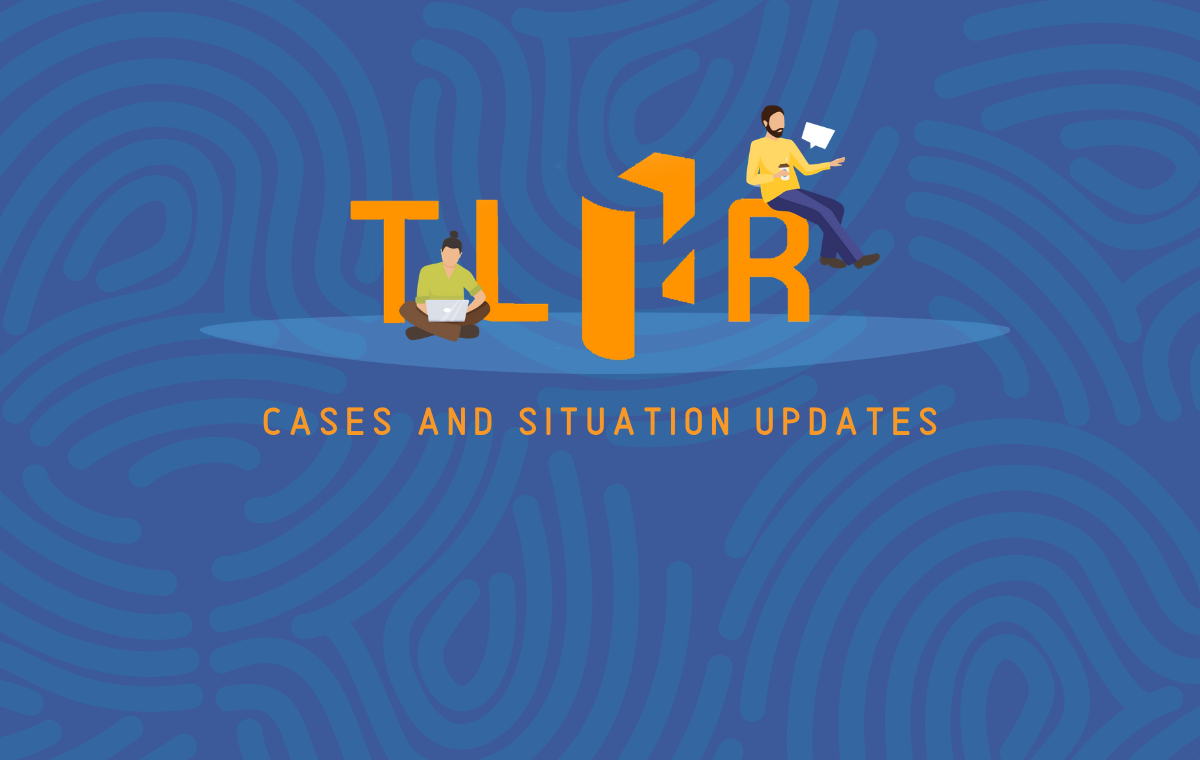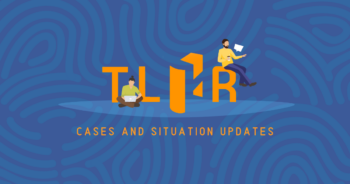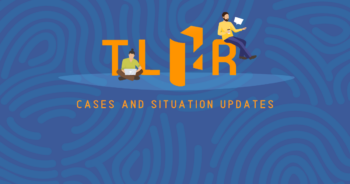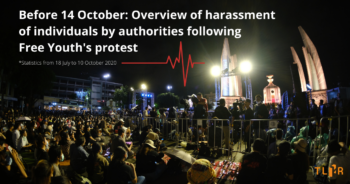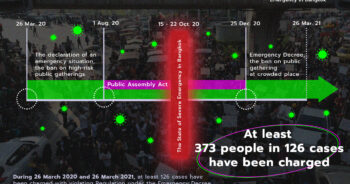In February, the pattern of legal harassment by the authorities has emerged. The “public health” regulations and the “lèse-majesté” law were concomitantly used against dissidents. Oftentimes the laws were interpreted in an arbitrary manner, resulting in rising numbers of citizens suffering from politically motivated lawsuits. Beyond the realm of law court, violence was spilled onto private and public spaces, as protests were met with series of brutal dispersals, and pro-democracy citizens, notably minors, were routinely surveilled and harassed at home or at school.
Human rights situation amidst the Covid-19 pandemic
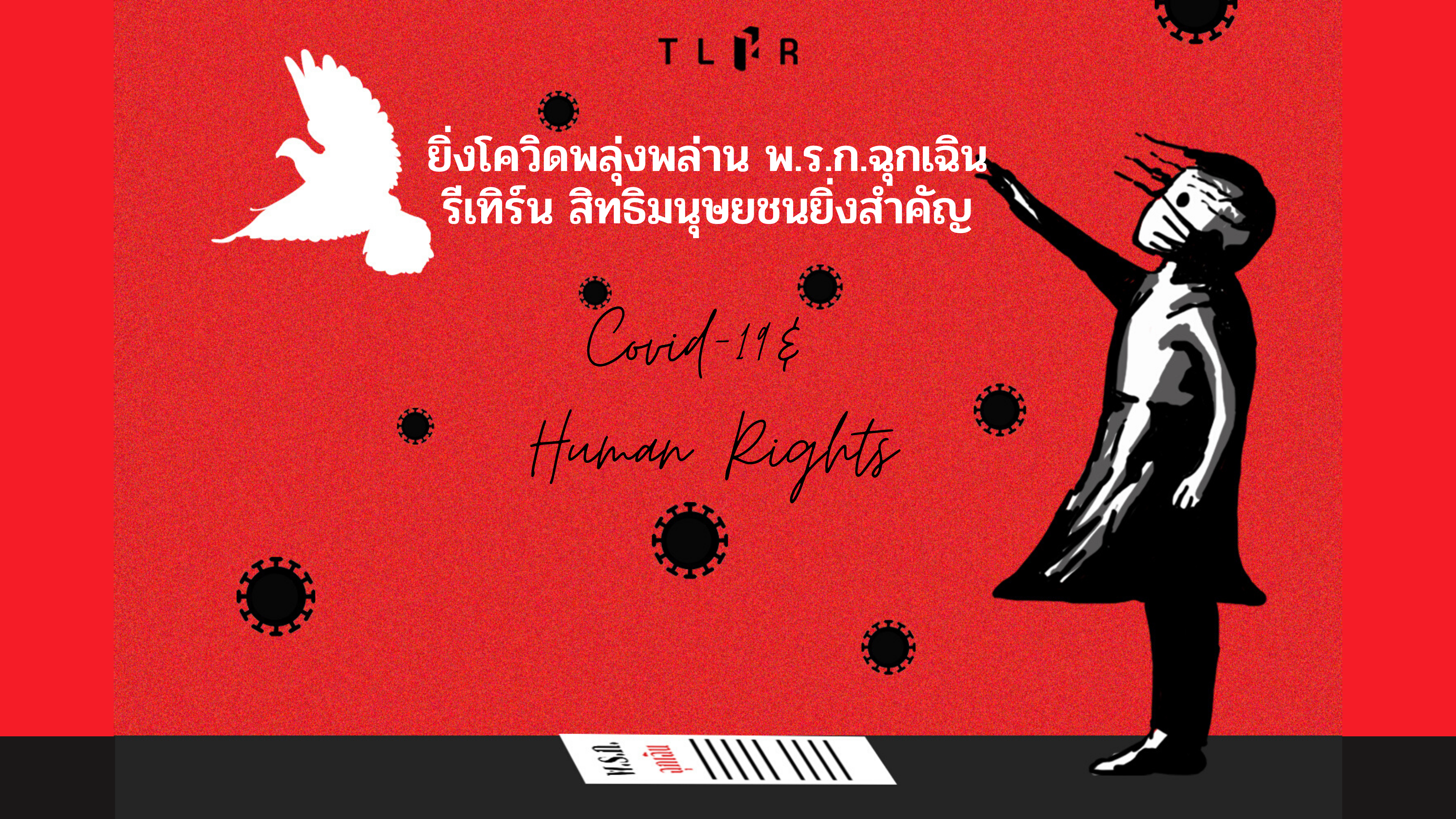
The 10th extension of the Emergency Decree effective until 31 March 2021 citing coup in Myanmar and political rallies in the country.
The government has approved the 10th nationwide extension of the Emergency Decree effective from 1 March – 31 March 2021, reasoning that 1. the current domestic political activities by various groups might pose risks of a wider spread of the virus, and that 2. the coup d’état in Myanmar has prompted several protests against the Myanmar military in the country, which might lead to more influx of illegal immigrants to Thailand.
The government has also cited domestic cluster infections in various residential districts and communities, the confirmed cases in various provinces with no links to the previous patients, and the uncertainty of the vaccine effectiveness against the disease and virus mutation.
The TLHR found that the charge with the violation of the public gathering ban deemed risky of disease transmission under the Emergency Decree on Public Administration in Emergency Situation, B.E. 2548 (2005) has still consistently been used for the political demonstrations led by students and citizens. From 18 July 2020 until the end of February 2021, at least 301 people in 101 cases were found to have been accused of breaching the provision, including:
- 78 cases under the Emergency Decree aimed to control the spread of Covid-19
- 23 cases during the announcement of the state of serious emergency in Bangkok (from 15 October, 4m. to 22 October, 12 p.m.)
Among these numbers, 32 cases also contain additional charges under the Public Assembly Act, even though the Section 3 (6) of the law explicitly requires that the law not be used on public gatherings during the state of emergency.
Overall human rights situation
Laws continue to be extensively used to prosecute anti-government protestors.

In February 2021, the situation in which “laws” were used against the protestors and people expressing political opinions is constantly on the rise, while the number of public assemblies led by students and citizens have begun to pick up to call for the release of their friends and for democracy.
In overview, the TLHR statistics show that at least 382 people in 207 cases have been prosecuted for political gatherings and expression in the course of just over seven months since the Free Youth rally on 18 July 2020 until 28 February 2021. Among this number were at least 13 minors below 18 years old.
Out of the abovementioned 207 cases, 35 were final as the accused had agreed to fine at the police stage or in court. These were related to the charges containing only fine penalties, for example, offence under the Cleanliness Act, failure to notify about the assembly, or traffic obstruction. While most of the cases are still in the investigation stage, an increasing number has been officially indicted this month.
In February, the charging of leaders and participants of political protests, which began in 2020, continues. It has been found that authorities had retroactively filed accusations for the rallies that took place months ago. The prominent case includes the rally in Chiang Mai at Tha Phae Gate on 29 July 2021, where the police issued warrants summoning as many as 37 people all with the charges of violating the Section 116, the Emergency Decree, and the Communicable Disease Act. The case is known to be the single case with the highest number of people accused since the Free Youth rally.
Furthermore, the nature of the police accusation in this case appears to be excessive and unlawful. That is, the officials did not specify which acts were considered breaching the Section 116. Almost all of the students and citizens involved merely attended the activity and did not make a speech. Even the student leaders who spoke on the stage on that day were not informed which part of their speech was allegedly offensive, either. The protest remained peaceful and did not cause any disorder.
The Section 112 charge under the Penal Code shows tendency to be more aggressive.
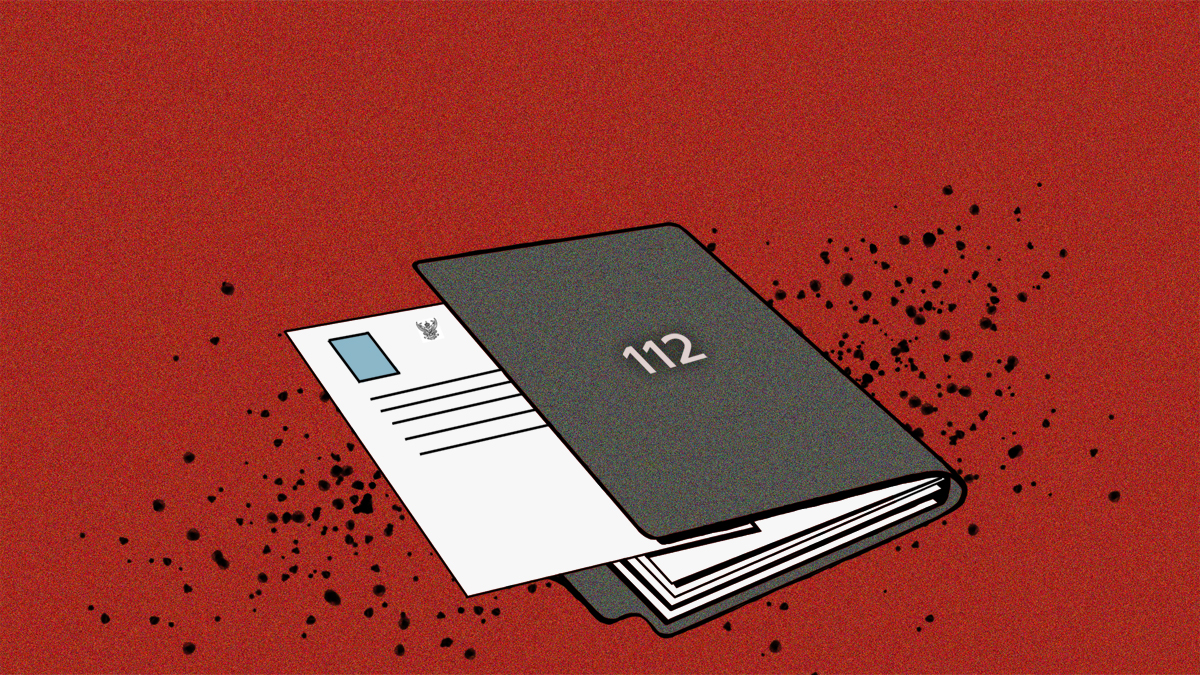
After three months since the government and police officers have returned to use the Section 112, or the so-called “lèse-majesté”, charges under the Penal Code in late November, the number of people facing prosecution has risen rapidly to at least 60 people in 47 cases.
The situation involving the use of Section 112 to accuse citizens tends to become more serious. The four leaders of the Kana Ratsadon group, including Parit ‘Penguin’ Chiwarak, Arnon Nampa, Somyot Pruksakasemsuk, and Patiwat Saraiyam have been indicted for participating in the 19 September rally. Parit also faced an indictment in another case for joining the Mob Fest event on 9 February 2021. The two cases are regarded as the first containing this charge since November 2020. Further, the Court has not approved the bail request for the four leaders during trial, and an appeal to the denying bail request in total five motions had been submitted. As a result, the four people are not entitled to the right to bail, while the Court’s processes are ongoing. While being in detention, the inquiry officers of various locations have additionally filed a Section 112 charge against Parit and Arnon in multiple instances.
In February, the Court issued three other arrest warrants with Section 112 charge, which had not been observed in the end of 2020. The warrants were issued by the Chiang Mai Provincial Court for Parit and Arnon for their participation in a rally in Chiang Mai on 23 November 2020 and by the Chiang Rai Provincial Court for Supreeya Jaikaew for placing signs reading “Monarchy budget > Public Remedy Budget” in the public.
The Section 112 remains to be enforced rather broadly, as opposed to adhering to strict interpretation according to the principle stipulated in the Penal Code. In this past month, the provision was used to accuse the act of fixing placards criticizing the royal budget, (in Lampang and Chiang Rai), Parit for posting about the sale of Emerald Buddha during King Rama VII’s reign, and Parit and Arnon’s speeches about different types of the royal assets.
The authorities dispersed political rallies violently and disproportionately.
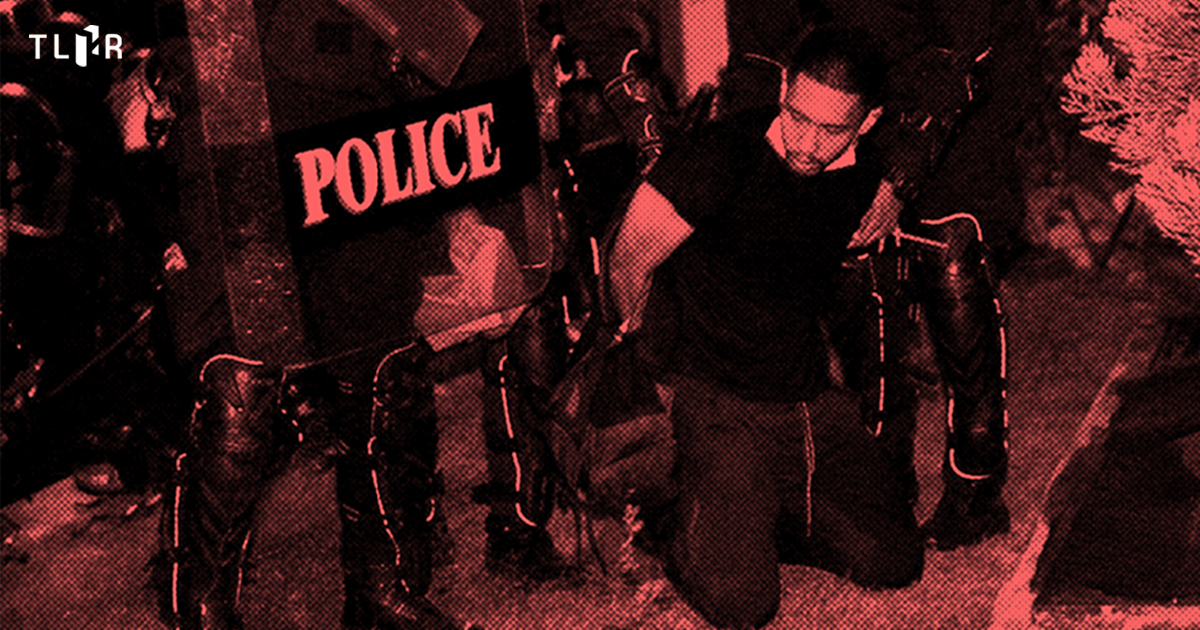
In February, the use of force by the authorities to disperse rallies has increased significantly compared to the previous period. While some rallies that took place this month saw the throwing of items or firecrackers at the authorities by some participants, the authorities reacted disproportionately violently and not in accordance with the assembly management principle. Examples are as follows: the deployment of a large number of riot control and border police to reclaim the assembly site did not follow the steps to disperse public assemblies. The police used weapons, including batons, tear gas, rubber-coated bullets, and high-pressure water cannon vehicle to disperse assemblies causing injuries. The police brought citizens to the Region 1 Border Police Bureau to file the charges and initiate a lawsuit, even though it was neither the responsible local police station nor had the mandate to do so. Or the plain-clothed officers wearing white helmets seen at the protests were reported by the civilian journalists to be military officers.
Important protests this month which were followed by violence as a result of the crackdown included the #StandWithMyanmar protest in front of the Embassy of Myanmar on 1 February 2021, the #13Feb march from the Democracy Monument to the City Pillar Shrine on 13 February 2021, and the #28Feb march from the Victory Monument to the Battalion Infantryman 1st Palace Guard Division on 28 February 2021.
Several on-site arrests of people were found to be irrelevant to the unrest, for example, the arrest of members of the volunteer medic team or non-participating food delivery personnel. Moreover, a large number of the detained and the protestors tended to face charges of violating the Emergency Decree, Section 215 and 216 of the Penal Code, obstruction of authorities’ duties, and causing physical harms towards the authorities, both during and after the protests with dispersion or “clashes”, even though the nature of several alleged offenders’ act did not fall within the scope of the said offences.
The threats against activists and citizens who exercise the freedom of expression remain intense.

The situation involving the authorities’ monitoring of people expressing political opinions has carried on from the previous months. The TLHR has observed at least 32 such cases, which included both cases of joining political protests as well as online posts about the Monarchy. Some of the cases concerned school youth.
An example is the case of an 18-year-old grade-12 student in Chiang Khong district in Chiang Rai. On 18 February 2021, it was reported that the police called his relatives to inquire about the location of their house. Around 9.30 a.m., one uniformed police officer from Boon Rueang police station approached him at school. Then, the police showed a photo of a list of people under the “watchlist” during 18-20 February 2021, containing names of around 40 Chiang Rai residents along with their identification number, address, and vehicles used. The list also had the student’s name. The officer said that he had received an order to monitor him and send a report to the “boss”.
Another case involves another 18-year-old grade-12 student in Phitsanulok. On 23 February 2021, the police contacted his parents and said that they wanted to talk to their son. As he went to see the officer at a coffee shop in the late afternoon, he found two plain-clothed police officers and the village chief waiting to talk to him. The authorities explained that they had received an order from Bangkok to investigate the young person who posted about the monarchy, and proceeded to show him two Facebook posts, which the student had shared from the Facebook pages “Pa Ning DK” and “KonthaiUK” between December 2020 and January 2021. The officers then asked the posts to be removed.
Key cases updates
The Appeal Court delivered a suspended imprisonment sentence of 4 months for “Ponlawat” in the Section 116 case involving distributing anti-coup leaflets.
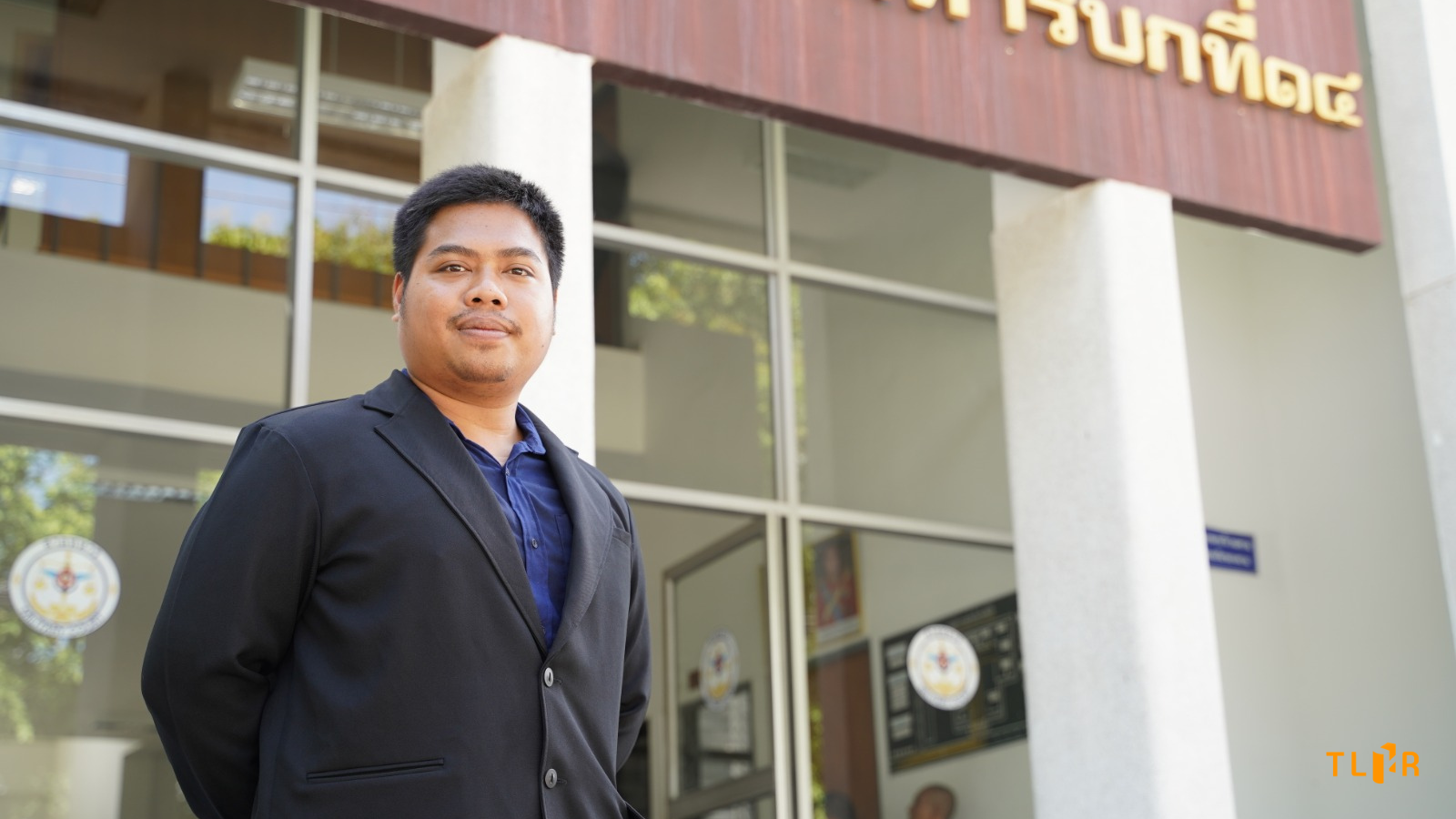
On 26 January 2021, the Rayong Provincial Court read the verdict of the Court of Appeal Region 2 for the case of Mr Ponlawat Warodomputtikun, a 28-year-old former factory technician, who had been accused with Section 116 and the Computer Crime Act for distributing anti-coup leaflets containing the text “All Democracy Lovers, Wake Up and Fight!!!… Down with Dictatorship. Long Live Democracy” in Rayong province in 2015. The case had been tried by the Military Court before was transferred to a civilian court.
On 26 March 2020, the Rayong Provincial Court had originally found the Defendant guilty of Section 116 (2) because the text in the leaflet intended to invite violent resistance against the NCPO, who was the government at that time. Ponlawat’s 6-month jail term was commuted for one-third to four months without suspension due to cooperation in the trial.
Later, Ponlawat submitted an appeal. The Court of Appeal modified the imprisonment sentence to a suspended sentence for the duration of 2 years. However, it affirmed the Court of First Instance’s opinion that the leaflets contained text inviting people who came across them or shared similar political stances to show resistance against the government of Gen Prayuth Chan-ocha. Even though Section 4 of the 2014 Constitution provides protection of rights, liberties and human dignity, the said rights and liberties shall be in compliance with the legal provisions, particularly the Penal Code, and shall not cause disorder or chaos in the country.
The Court dismissed the Section 112 case of “Nurse Waen” involving Line messages due to insufficient Plaintiff’s evidences.

On 28 January 2021, the Nonthaburi Provincial Court read the verdict for the Section 112 case of Natthathida Meewangpla, aka “Nurse Waen”, who was accused of sending one text insulting King Rama IX in a Line group on 8 March 2015. This case was filed by Maj Gen Wijan Jodtaeng, the head of the NCPO legal working group, and was tried by the Military Court before being transferred to the Civilian Court. In the end, the Court dismissed the case. In her interview, Natthathida, summarizing the judge’s reasons, said that the Plaintiff’s evidences and witnesses were insufficient, so the Court gave her the benefit of the doubt.
On the reading date of the verdict, the Court did not allow other people in the room, except for the parties in the lawsuit, citing the Covid-19 pandemic situation.
